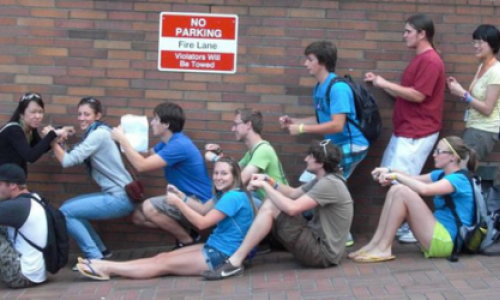
Achieving academic success, gaining work experience, building social connections, and maintaining a healthy lifestyle are just a few of the priorities competing for a student’s time and energy. In our endlessly busy lives, wouldn’t it be nice to maximize outcomes given the limited resources we have? The article below describe 5 study tips that can optimize the learning process and save time.
1. Do Readings On-The-Go
It can be hard to keep up with readings when assignments, projects, and presentations are demanding your immediate attention. For those who commute to school, the time spent on the bus or Skytrain can be used to catch up on readings. Textbooks that come in electronic format can be read on phones or tablets. If no electronic formats are available, a solution is to take pictures of the section of the book that you plan on reading that day before leaving the house, or just bring along hardcopies of the reading material. For those who find it nauseating to read on the bus, try converting the text to audio files. Audiobooks come in handy since they can be consumed while performing daily tasks such as exercising or doing chores.
2. Teach the Material to Others
Teaching is an effective way to solidify what you've learned through study. More precisely, explaining what you just learned to others can be an effective review process that helps identify gaps in your own knowledge. Therefore, try teaching a newly learned topic to a friend or family member, perhaps using the lecture slides provided by the professor. It will be beneficial if your audience has little prior knowledge of the subject. That way, they can point out the areas where you are unclear and allow you to recognize where your own understanding may be fuzzy. When attempting to convey concepts to others, you may also surprise yourself by coming up with good analogies, acronyms, or other memory shortcuts that you can use for yourself. This method will also benefit the person you are teaching, as they will be able to learn something new!
3. Level Out the Studying Time
Although it is common practice to leave much of the studying to the few days leading up to the exam, splitting up the studying time evenly throughout the semester is much more effective. For example, instead of spending 15 hours to study for a final exam, it is better to study for an hour each week during the 13-week semester, and then do a 2-hour review session right before the exam. This is because the brain can retain information better through repetition, also known as “practice makes perfect”. Also, fully understanding one topic before moving on to the next one will allow easier absorption of new concepts. This continuous learning model involves reviewing every lecture’s material within one or two days after the lecture. For more conceptually difficult courses, previewing before the lecture can making learning more efficient as well. In that case, the lecture itself may act more as a review.
4. Make Use of Calendars and Task-Organizers
When studying becomes more spread out, the number of tasks to remember also increases. Whether it be on paper, productivity applications, or a simple Word document, having a tool to keep track of learning tasks and upcoming deadlines is an excellent way to stay on top of things. Making a systematic to-do list and checking it daily is a decent place to start. The constant reminder of looming duties combined with the satisfaction of crossing items off the list when they are completed serve as motivation to get things done. Personally, I use the Google Calendar application frequently for setting reminders and scheduling events. This enables me to stay aware of impending responsibilities and allocate time to prepare for them. No matter the tool used, it is important to use it consistently, keeping good record of what needs to be done and when.
5. Participate in Class Discussions
When sitting in long lectures, students may find themselves losing focus, not comprehending, or sometimes even drifting asleep. To combat this, aim to speak up as much as possible in the classroom, especially in smaller to midsized classes. If the course has a mandatory class participation component, then this will naturally provide a grade-boosting benefit. But even if class participation is not mandatory, try to ask a couple of questions each lecture. This will require you to pay closer attention to what the professor is saying -- a technique known as active listening. It will also allow you to clarify confusing concepts right as you first encounter them. Plus, coming up with thought-provoking questions may result in leaving a positive impression on the professor.
Bonus: Sleep Before the Exam
To be thoroughly prepared for an exam the next day, students often study until very late into the night. However, not having enough sleep can deeply impact performance during the test. For best results, try to get a full night’s rest even if it means cutting into studying time. When that’s not feasible, try to squeeze in a quick power nap (15-30 minutes) right before the exam. This short rest acts like an emergency battery charge. The nap can greatly boost energy levels, providing enough stamina to last through the exam on high-performance mode.












